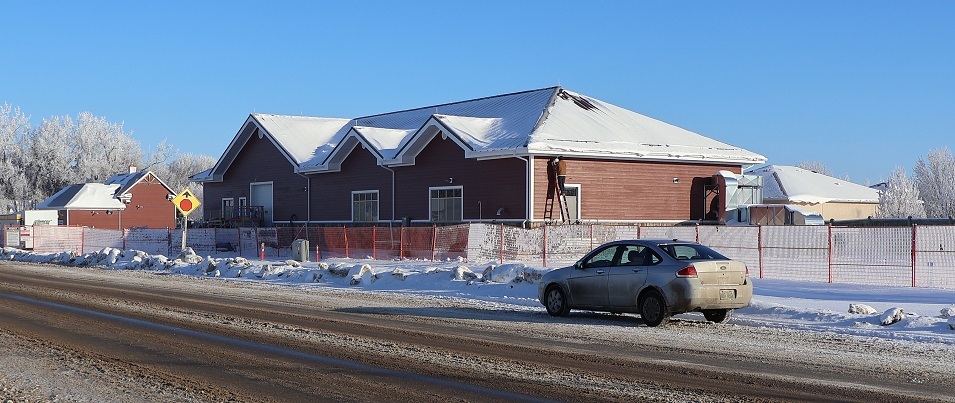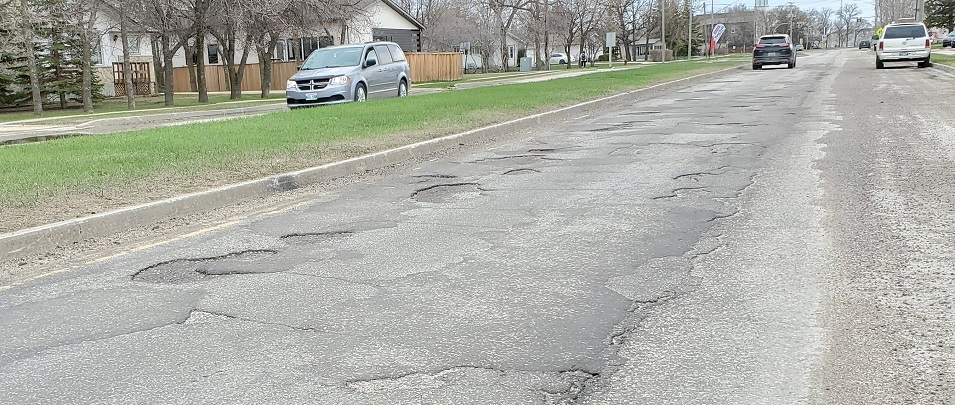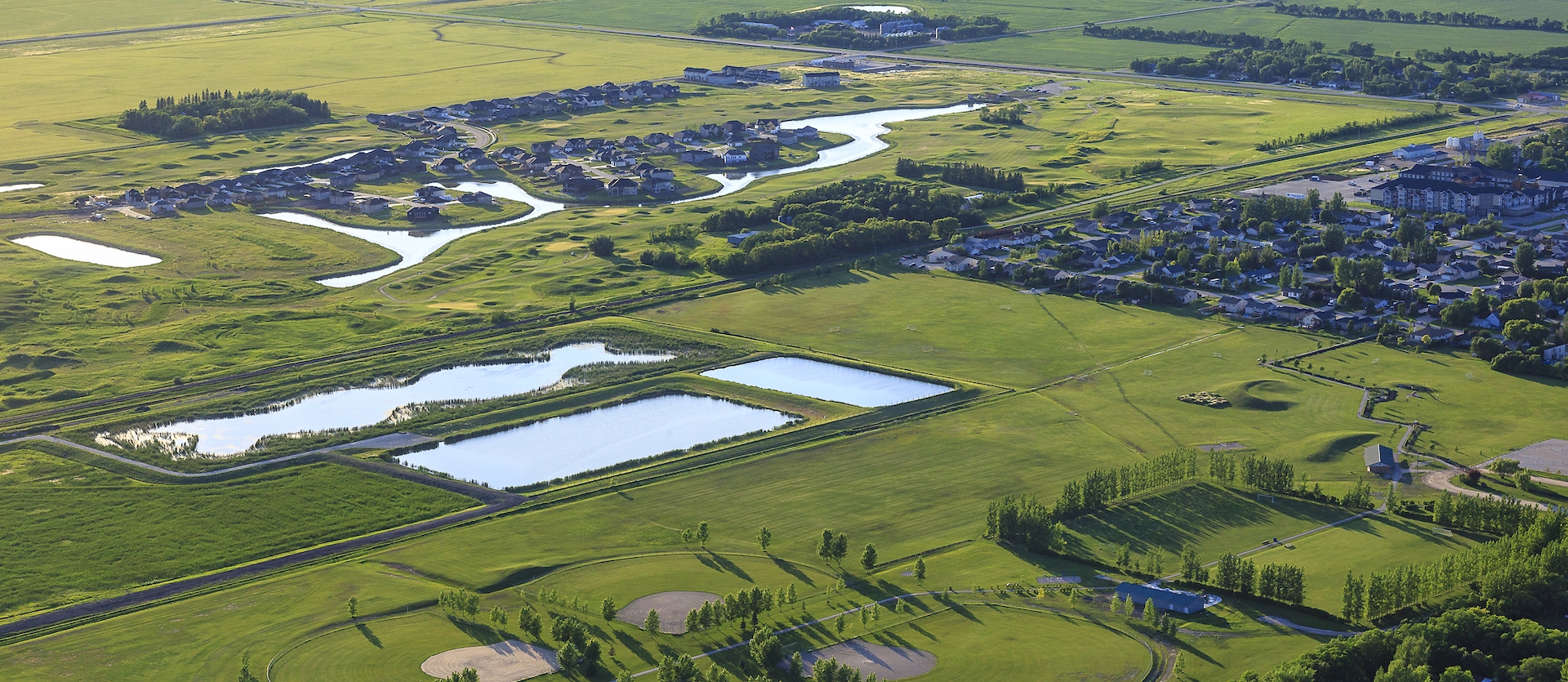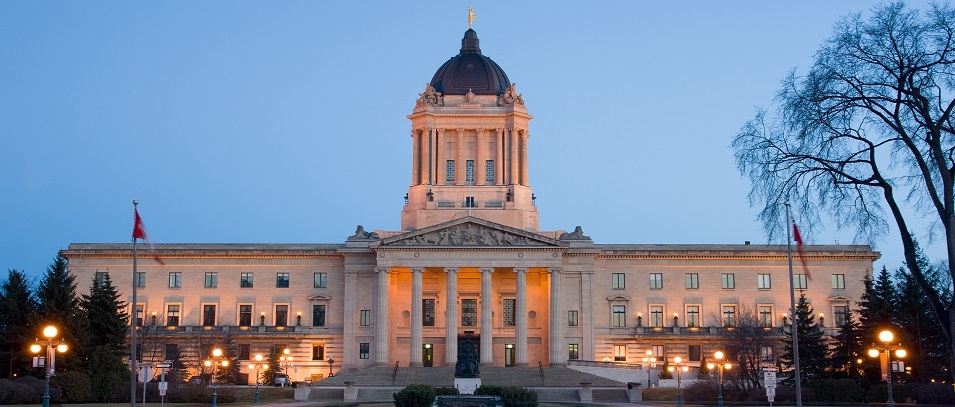
It’s a new year with a new council, but many ongoing projects are underway in the town of Niverville, including some big ones that have been anticipated for many years.
Wastewater Treatment Plant
High on that list of projects is the $110 million wastewater treatment plant proposed for construction on a section of land just north of Niverville. Once complete, the plant will service 13 communities in four neighbouring municipalities: Niverville, Ritchot, Tache, and Hanover.
Niverville CAO Eric King says that an engineer has been contracted for the first part of the design.
“They are drawing up the plans for all of the underground infrastructure, [including] all of the pipes from the 13 communities to here,” King says.
A Request for Qualifications (RFQ) will be going out this month, giving engineering companies and building contractors three months to submit their proposals.
King says these proposals typically arrive as binders with 1,500 pages of data to pour through, including qualifications on all of the company’s team members, previous build experience, and a timeline in which they expect to complete the project.
Once the RFQ candidates are narrowed down, each will be required to submit a Request for Proposal (RFP), outlining the costs to complete the build.
“The actual contract for construction will probably be awarded this time next year,” says King.
Even so, he adds that it could be 2025 before the construction team gets started, with an additional two years after that until the plant is fully operational.
In its entirety, the project will include a high-tech treatment plant, lift stations, pump stations, and approximately 90 kilometres of effluent pipeline. It is anticipated that the project will create more than 3,400 new jobs in the coming decade.
Niverville RCMP Detachment
Manitoba’s newest RCMP detachment will soon be located in Niverville, although the term “soon” is relative. This is, after all, a major project saddled with mounds of red tape.
Mayor Myron Dyck wants to reassure Niverville residents that a stronger police presence is on its way.
“We’ve heard you, we’re working towards it, but things take time,” says Dyck.
At present, council is awaiting design plans from Calnitsky Associates Architects Inc. before contractors can be hired.
The detachment will be located in the rear section of the municipal building and is anticipated to provide full-time office space for up to five constables, administration staff, and other public service personnel.
Due to a high level of sensitivity, contractors hired for an RCMP detachment build must have special security clearance qualifications, which narrows the options.
For this reason, CAO Eric King will act as project manager to save on additional costs. He is currently the only town staffer with security clearance privileges.
“It can add hundreds of thousands of dollars to a project,” says Mayor Dyck of hiring professional project managers with RCMP clearance permissions.
Local contractors will also be hired based on their security clearance status. Council is hopeful for the completion of the detachment in late 2023.
Water Treatment Plant
Niverville’s new $5 million water treatment plant, which began construction in spring of 2022, is expected to be online and fully functional in the coming weeks. King says that a few final tests are being run at this point.
The new plant is expected to be able to service up to 15,000 residents with treated water. But even with greater capacity, Dyck wants residents to be aware that there will still be some restrictions on water use going forward.
For example, he feels that, to be a good steward of resources, it would be responsible to continue using alternate lawn-watering days in the summer.
King adds that the province has made it mandatory for a municipality to have specific water conservation plans in place in order to be issued a new license.
The Budgets that Pay for the Projects
King says that final assessment numbers need to come in from the province before he can release council’s full 2023 budget plan. It can be said, though, that the new budget will be up from last year due to changes in minimum wage rates as well as inflationary costs on everything else.
“Just to do what we did last year would require a seven percent increase,” says Dyck. “Council is working hard toward coming in under seven percent. But that means that, technically, we’d have less to offer this year than we did last year.”



















